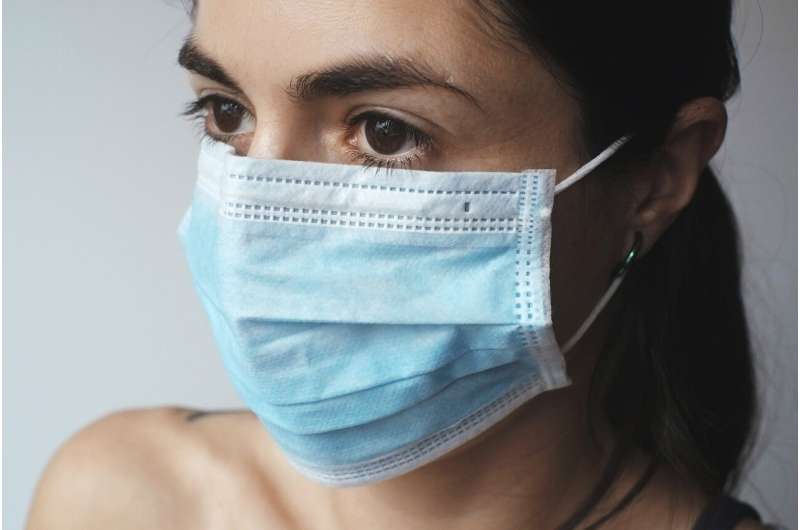New study finds worrying linked to more COVID-19 preventative behaviors

People who worried more about COVID-19 also took more precautions against catching the disease, a new study led by a Dickinson College researcher finds. The journal Psychology & Health published the study. Psychology Professor Marie Helweg-Larsen, Ph.D., and her team looked at the interplay between one's perceived risk of getting COVID-19 and the state of worrying about getting COVID-19 and how they influenced behaviors to prevent getting the disease. Researchers found that worrying about COVID-19 better predicted people taking COVID-19 precautions than did their perceived risk—how much at risk people personally thought they were of getting or dying from COVID-19.
"In the context of COVID-19, fear of the disease predicted precautionary behavior over-and-above a range of other variables including perceived risk and even political attitudes," said Helweg-Larsen, who has made international headlines for her research on how people calculate their personal risk. "Worry and thinking you're at risk certainly are related, but they do not play the same role in the precautions people take. Our analysis shows worry, the emotional response, is stronger, which is interesting in a time when we have so much personalized risk information, like the level of COVID in our immediate area," said Helweg-Larsen.
The study examined the responses of 738 people to two surveys, two weeks apart, in April 2020. The surveys asked participants about their worry and perceived risk of catching COVID-19 and what precautions they were taking to keep themselves safe, like social distancing, handwashing and wearing face coverings. The researchers also compared respondents' perceptions of local COVID-19 outbreaks to actual state data on case numbers at the time of the surveys. They found that people who overestimated the number of COVID-19 cases near them were more likely to worry and to then take precautions against the disease.
These findings show the importance of worry as an emotional reaction that leads directly to taking preventative action, something that could be harnessed in public messaging. "It's critical to note that policymakers should not work to create more worry around COVID-19, but they could harness people's worries to encourage them to take more precautions," said Helweg-Larsen.
More information: Marie Helweg-Larsen et al, The interplay between cognitive and affective risks in predicting COVID-19 precautions: a longitudinal representative study of Americans, Psychology & Health (2022). DOI: 10.1080/08870446.2022.2060979



















